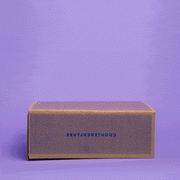-
Counter Culture has been engaged with Rwanda’s specialty coffee industry since its beginning in the early 2000s. A USAID development project called Partnership for Enhancing Agriculture in Rwanda through Linkages (otherwise known as PEARL) transformed Rwanda’s coffee sector through investment at every level of coffee production. Counter Culture staff and other coffee industry professionals made frequent trips to the region—sometimes three or four a year—to mentor and train a new generation of Rwandan coffee professionals. During this time, we met Gilbert Gatali, who managed a farmer-owned exporting company working closely with PEARL. Gilbert connected us with producers and helped us better understand and navigate this new market. Though our business paths eventually diverged, we always stayed in touch—hoping we could work together when the time was right.
Over a decade later, and after a stint away from the coffee business altogether, Gilbert returned with a vision to enhance the quality and community aspects of coffee production in Rwanda. He purchased a washing station in Rwanda’s western province, originally constructed through the PEARL project, and renamed it Intango. Coincidentally, Counter Culture had bought coffee from this washing station in the past, then called Musenyi. Under his leadership, Intango has become known for its commitment to quality over quantity and its efforts to foster a unique sense of community amongst the staff and coffee producers.
In 2018, Intango washing station commenced production with a focus on upgrading facilities and training staff to ensure the production of exceptional coffees. In the summer of that same year, they participated in one of our Climate Change Adaptation Workshops, held locally in Rwanda. Later, in 2020, Intango received a Seeds grant for agronomy training and plant nursery for producers. Gilbert and his team are currently focused on developing profit-sharing and social impact programs tailored to the needs of producers.
Though some people equate dark roasts with lower quality, we’ve found this style can create a complex cup when the coffee being roasted is of high quality. Like many coffee-producing regions in Rwanda, farms in the Karongi district sit at high elevation, resulting in denser coffees. This density lends well to darker roasting, as the beans can withstand higher temperatures while retaining their characteristic sweet and fruity notes. We hope that sharing a different take on these flavor profiles will encourage drinkers to seek out other coffees from a country near and dear to Counter Culture.
Potato Taste Defect
Intango, like many coffees from the Great Lakes region of East Africa, has a small likelihood of having a defect called Potato Taste Defect (PTD). You would notice this issue when grinding your coffee. Though a bit unpleasant and highly aromatic, PTD only affects individual beans and doesn't spread throughout the bag. It only impacts flavor and is completely safe to consume. If you'd like to learn more about this defect, as well as some tips for avoiding it in your cup, check out our Potato Taste Defect blog post. -
Harvest
Process: Washed
Certifications: Kosher
Elevation: 1,500–2,000 meters
Variety: Bourbon Mayaguez 71 & 139, Jackson
Harvest Time: April 2023–June 2023
Available: Through early-May 2024
-
Roots Origin
Length of Partnership
1995 2015 202612 years
Location

-
We believe in paying more.
Since 2009, we have published an annual transparency report to serve as a blueprint for our green coffee purchasing practices and a response to chronically low prices in the coffee industry. We believe paying more for green coffee is an important investment in the long-term viability of our coffee-growing partners’ businesses and our supply.
$0 $5$4.12 (Free on Board)/lb - Our price for Intango – Dark Roast
$2.05 FOB/lb - Fair Trade Certified Minimum
$1.85 FOB/lb - Average C Market Price
-
All of our coffees can be brewed in various ways, designed for your perfect morning. Try these recipes to highlight each coffee's flavor profile. Your brewing adventure starts here.

Espresso
Coffee: 18 Grams
Grind: extra-fine
Ratio: 1:2
Coffee: 18 Grams
Grind: extra-fine
Ratio: 1:2
VIEW FULL RECIPE
CLOSE RECIPE
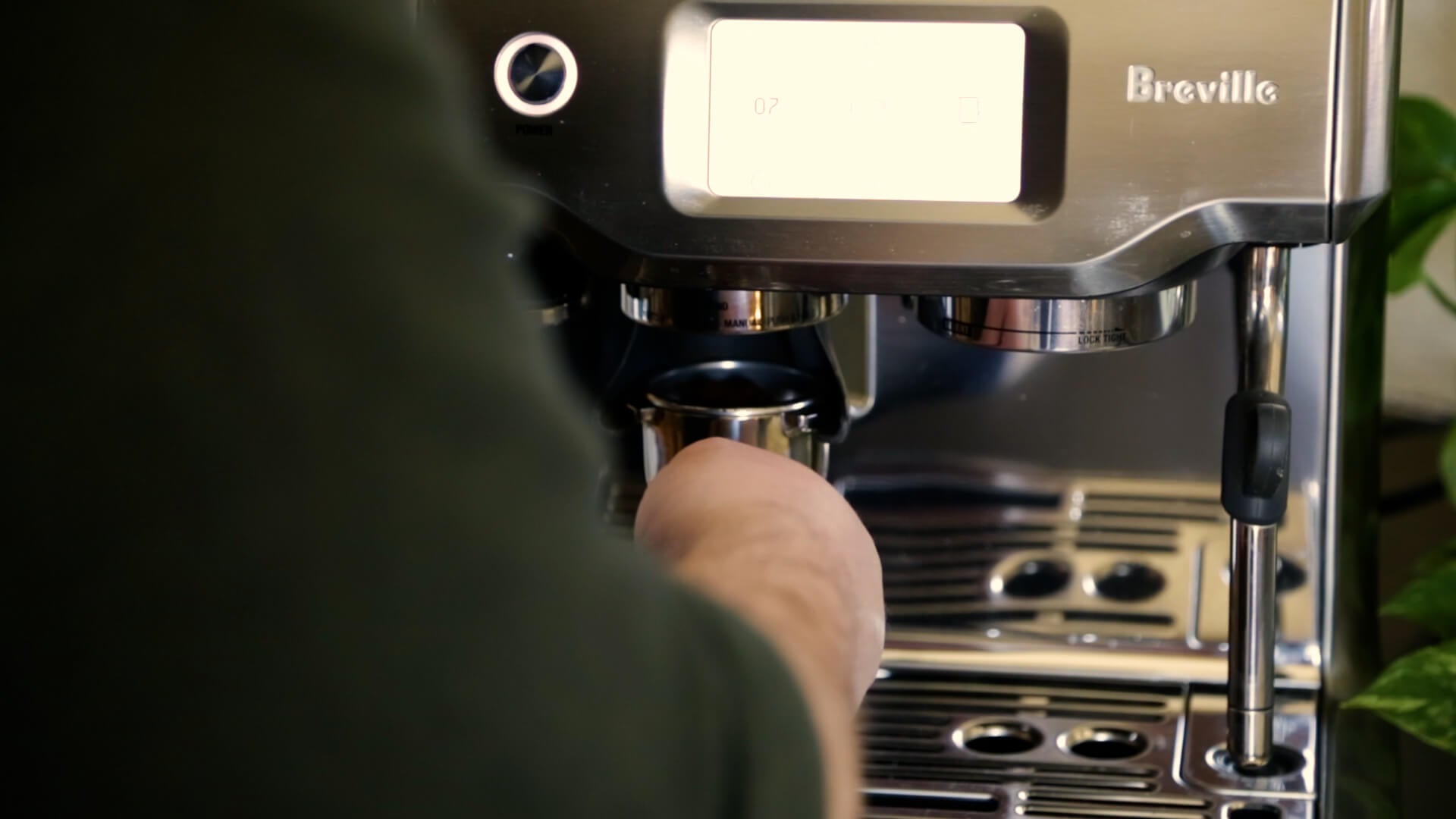
1: Grind Coffee
Using an espresso grinder, grind your coffee very fine. Weigh your ground espresso and adjust the dose to ensure accuracy. We recommend dosing within 0.2 grams of the target weight.
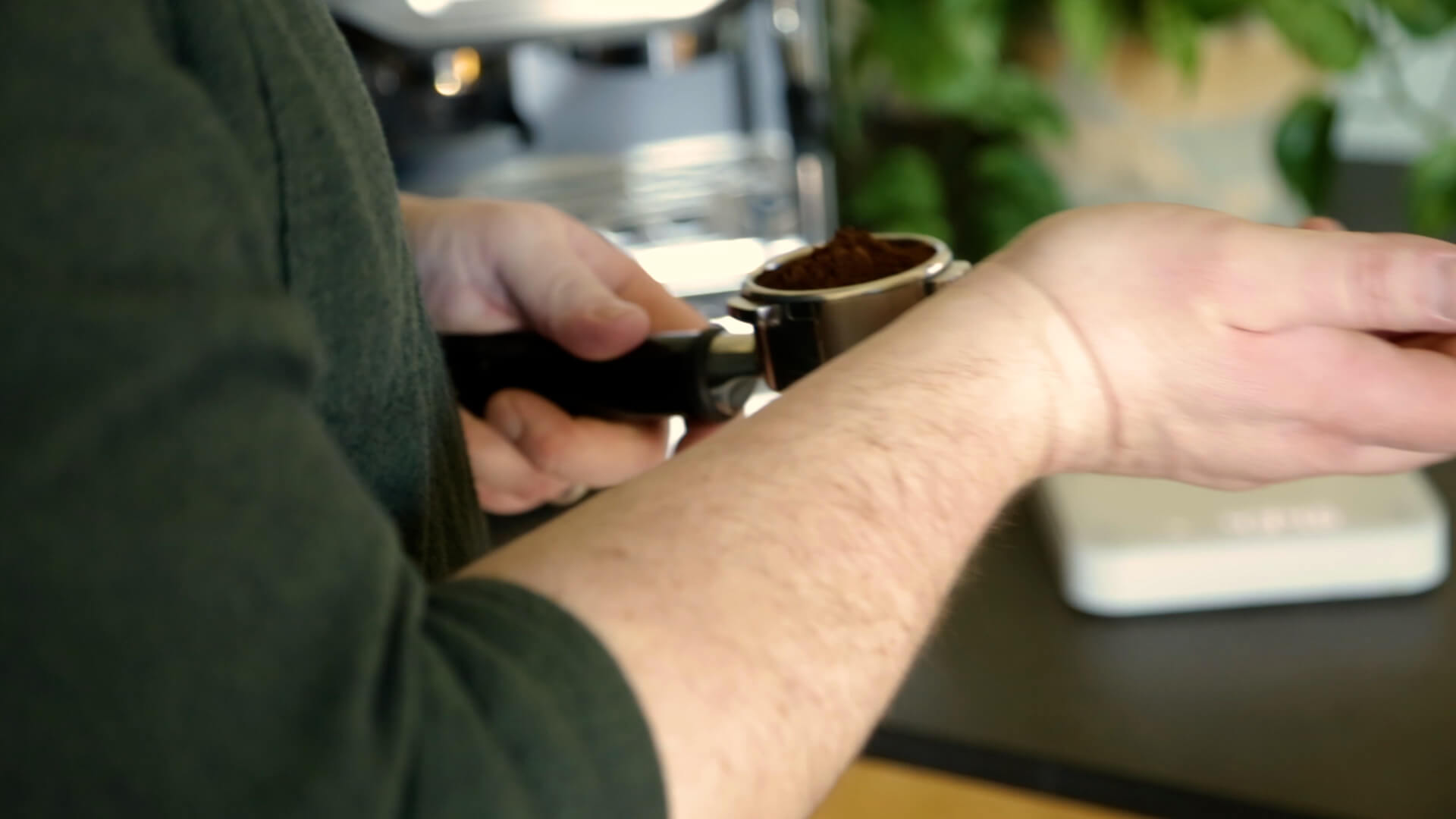
2: Distribute Coffee
Distribute your espresso to ensure a level, even brew bed.
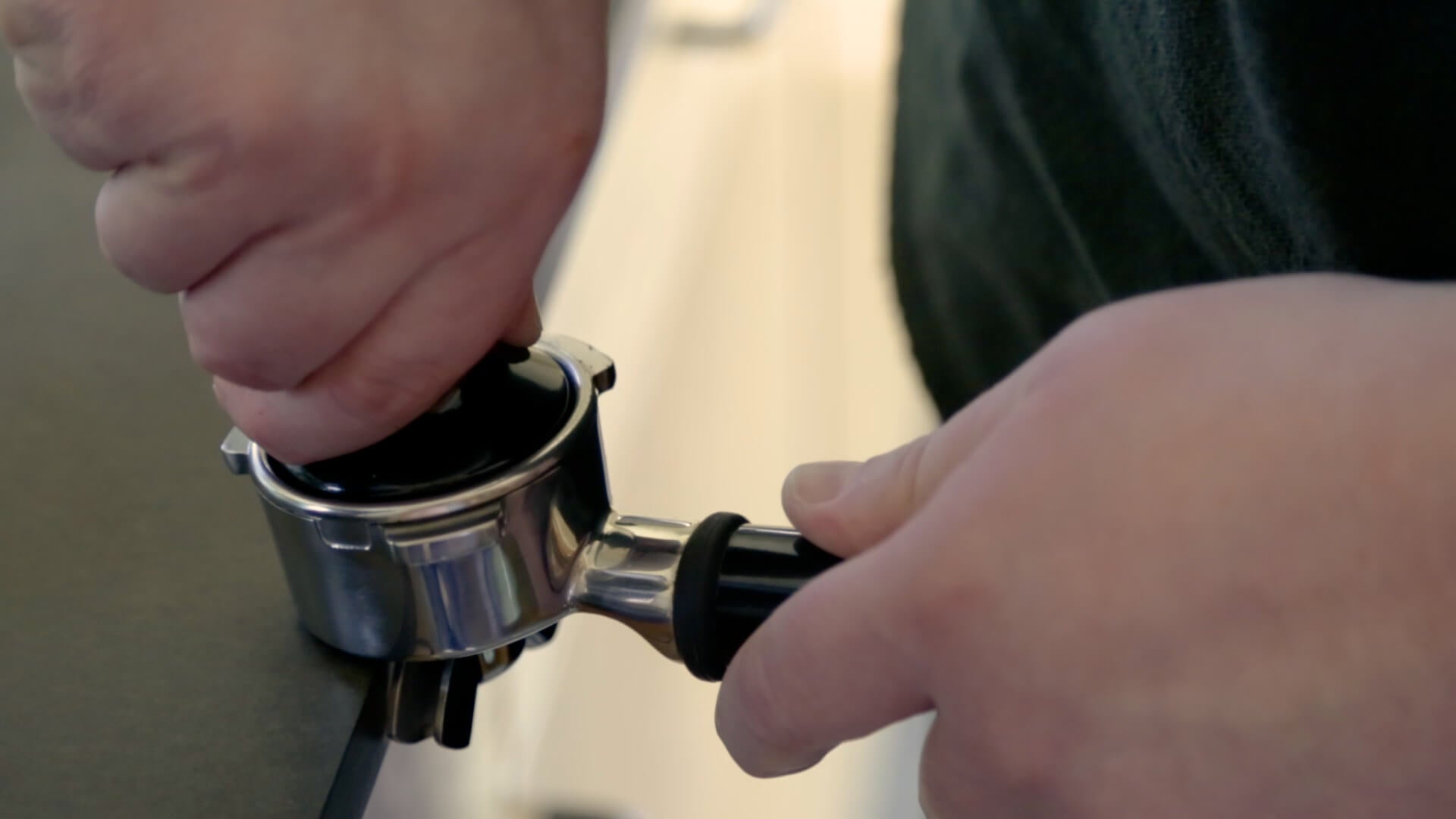
3: Tamp Coffee
Tamp your espresso. Make sure that your tamper is level and that you apply force evenly. Press down until you feel resistance from the counter.
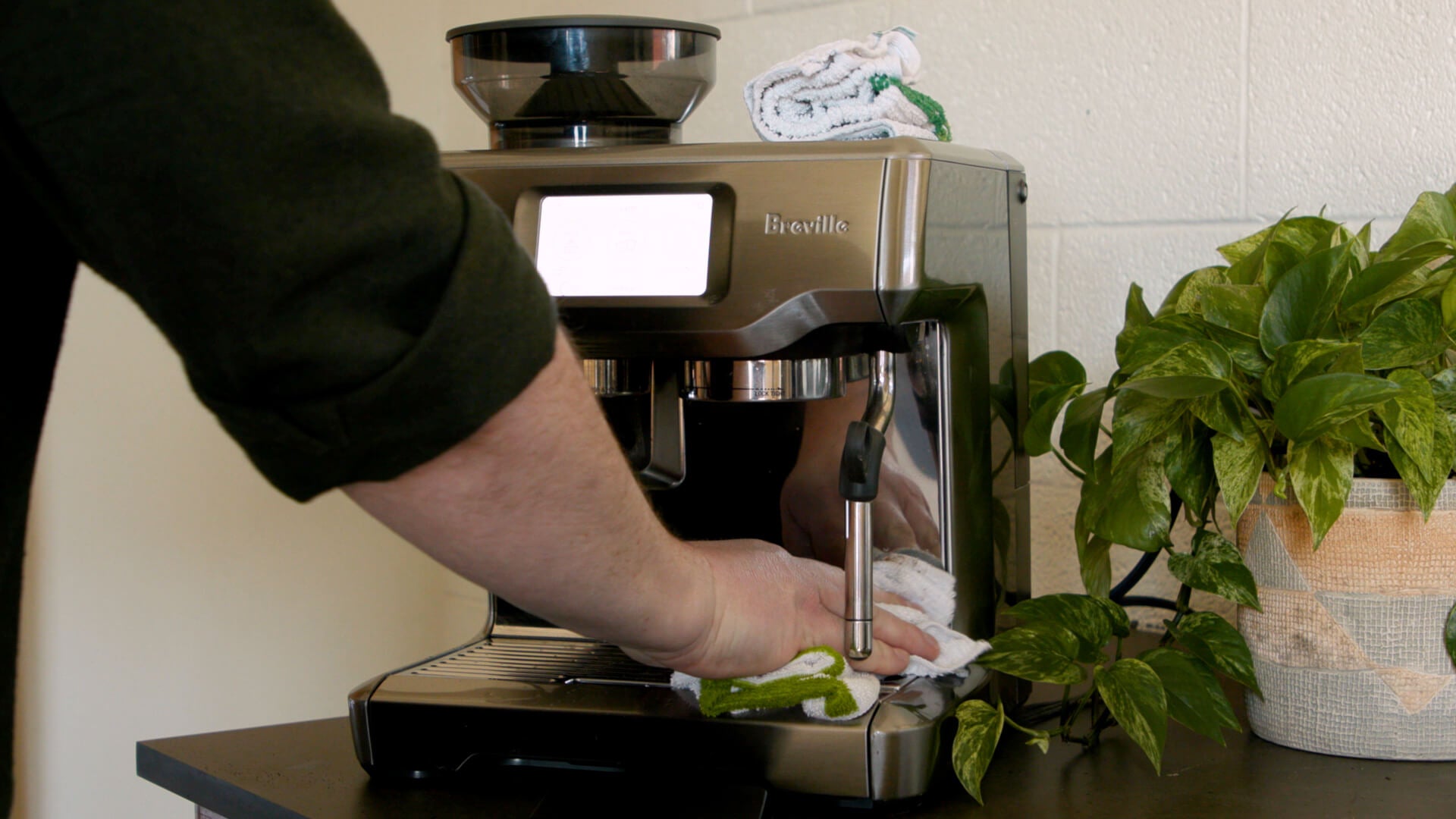
4: Clean Station
Clear a small amount of water through your grouphead, ensuring its cleanliness. Wipe your driptray clean.
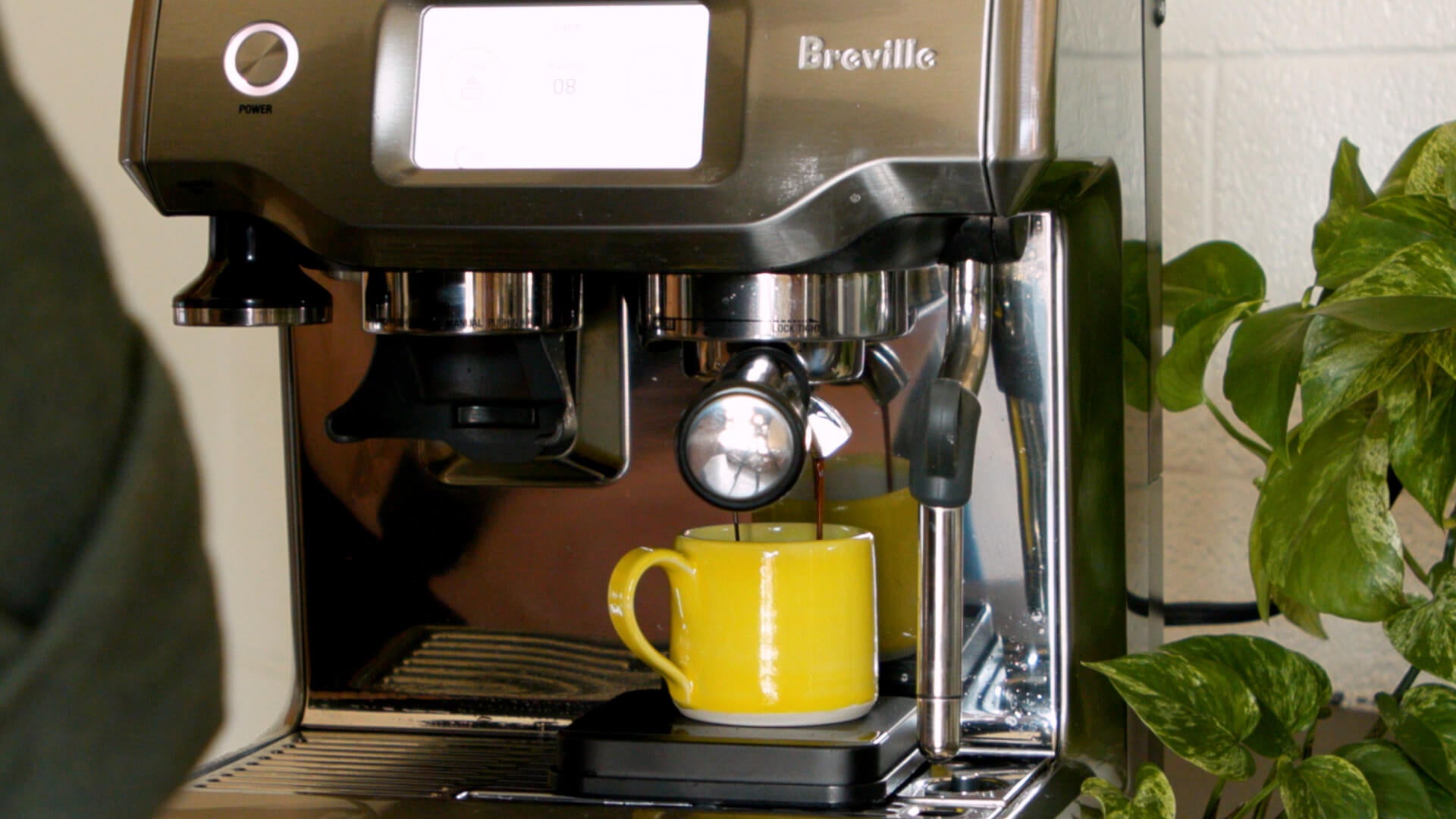
5: Begin Extraction
Insert the portafilter and position your scale and cup on the driptray. Begin extraction. Stop the shot when the scale reads a few grams less than your desired brew weight. Check the time of your shot. If it is less than 25 seconds,consider making your grind finer. If it is more than 35 seconds, consider making your grind coarser.
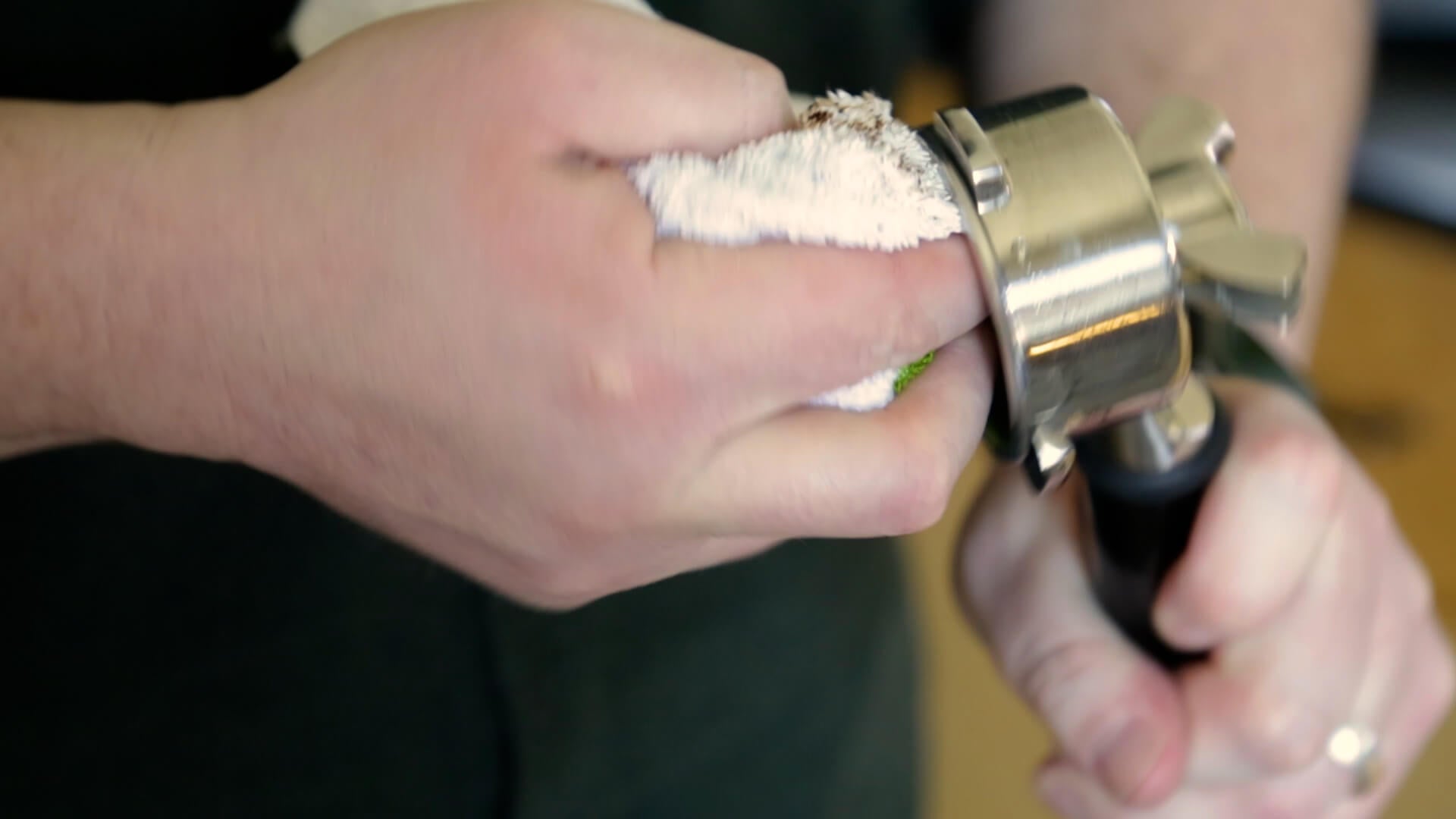
6: Adjust and Enjoy!
Remove the espresso puck from the portafilter. Wipe the portafilter basket clean, rinse the grouphead, and lock the portafilter back into place. Taste your espresso. If it tastes overwhelmingly sour, consider making your grind finer and/or extending your brew ratio, up to 1:2.5 parts coffee to water. If it is overwhelmingly harsh and bitter, consider making your grind coarser and/or reducing your brew ratio, making the shot as concentrated as 1:1.5 parts coffee to water. Enjoy your espresso on its own, or use it as the base for your favorite milk drink!

Hario V60
Coffee: 30 Grams
Grind: medium-fine
Water: 500 grams of filtered hot water (200 F)
Ratio: 1:17
Time: 3:30-4:00 Min
Coffee: 30 Grams
Grind: medium-fine
Water: 500 grams of filtered hot water (200 F)
Ratio: 1:17
Time: 3:30-4:00 Min
VIEW FULL RECIPE
CLOSE RECIPE
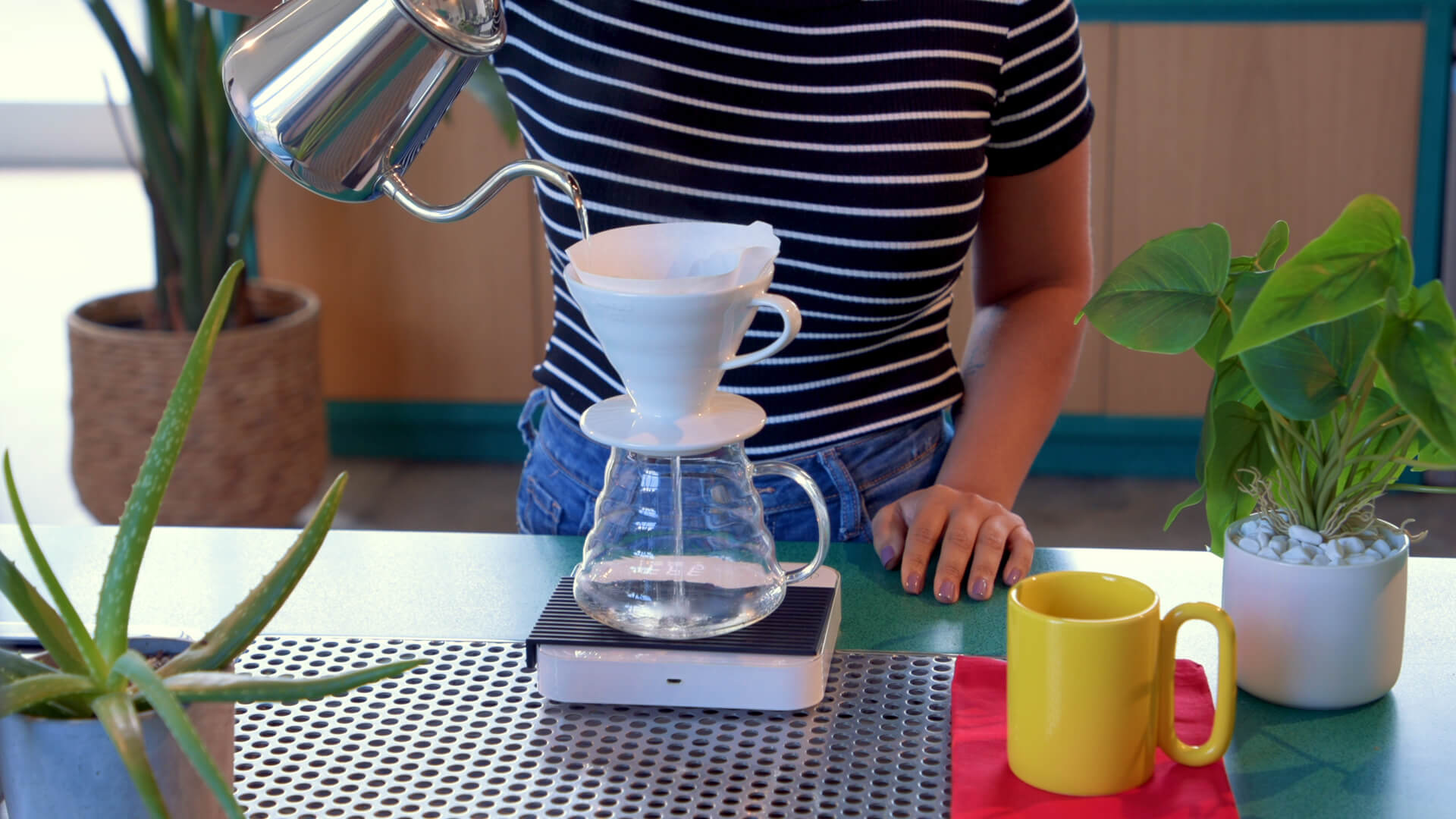
1: Rinse Filter
Heat water to 200F. Place filter in V60 and rinse with hot water, discarding when finished.
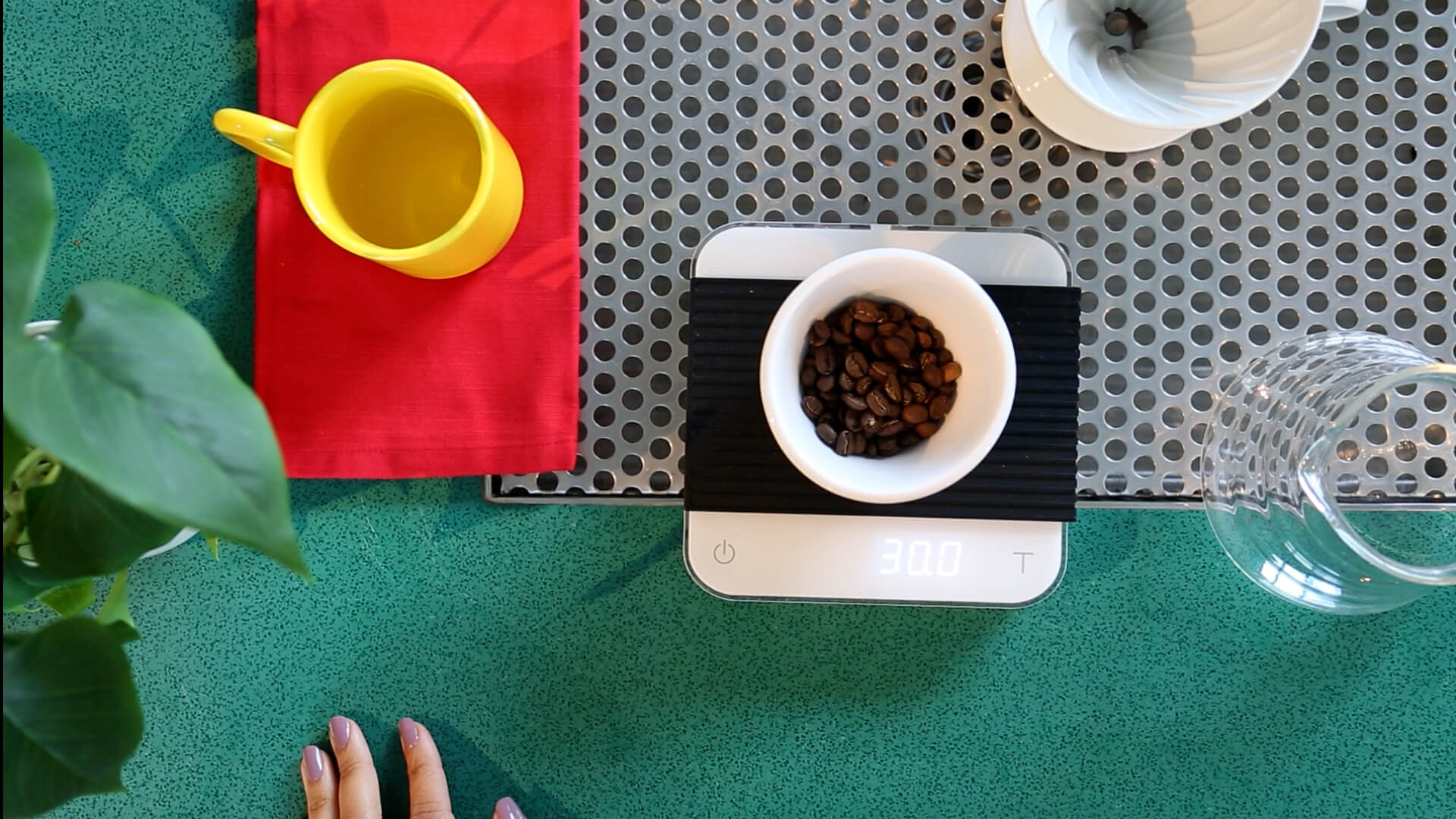
2: Grind Coffee
Weigh 30g coffee and grind on medium fine setting, like table salt.
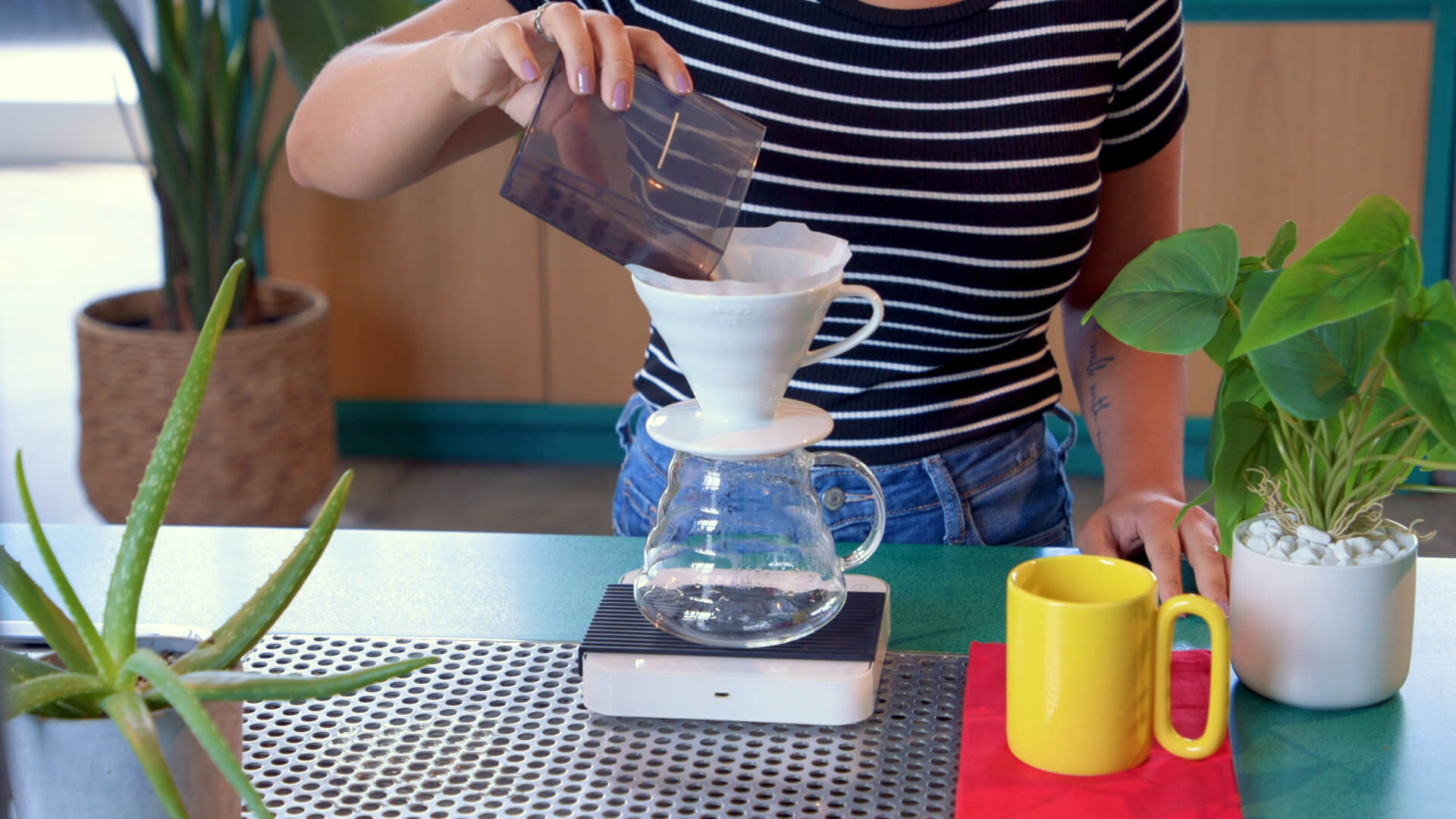
3: Add Grounds
Place coffee in filter, and shake to level grounds.
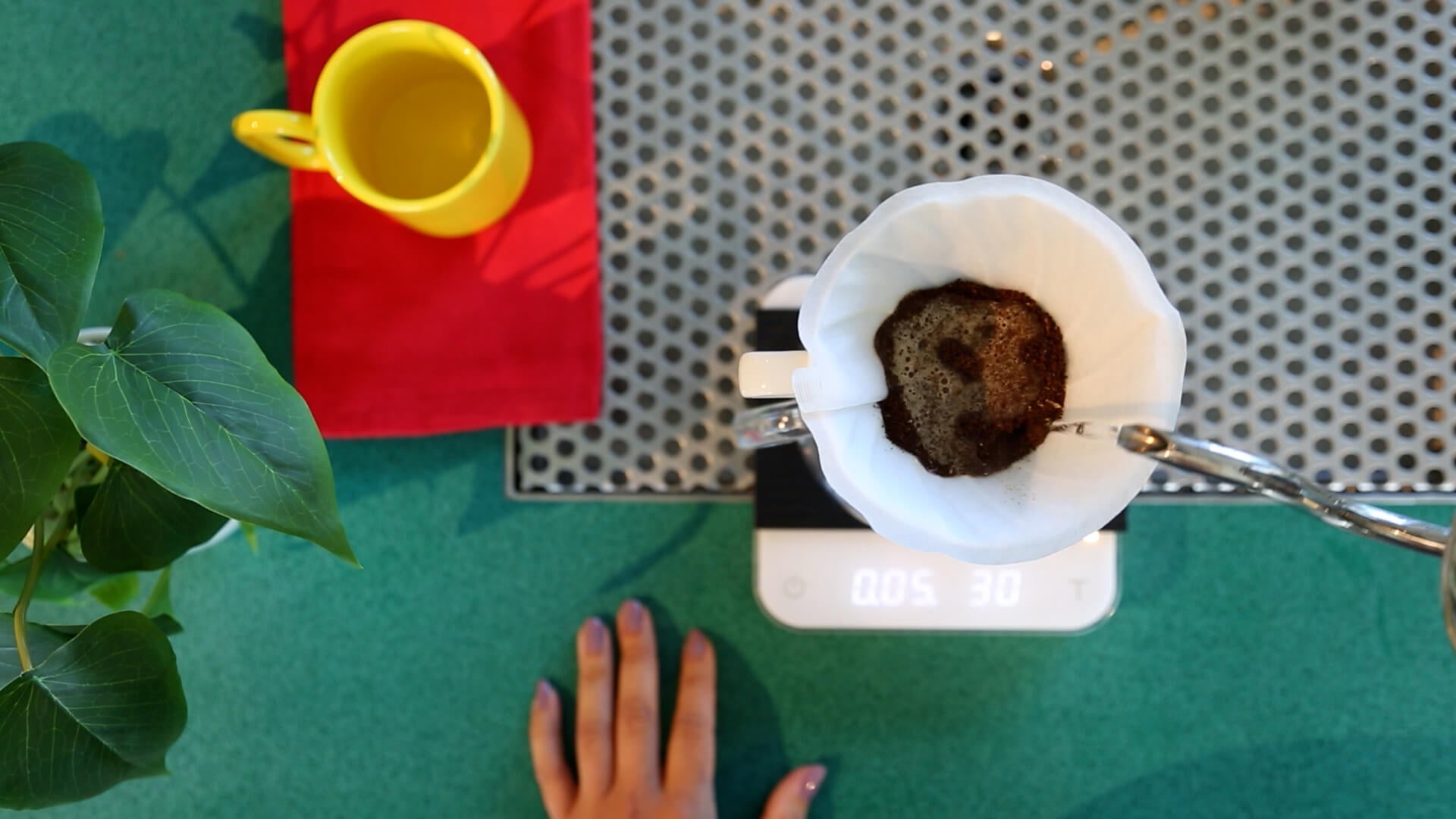
4: Bloom Grounds
Start a timer and pour 60g of water to wet all the coffee.
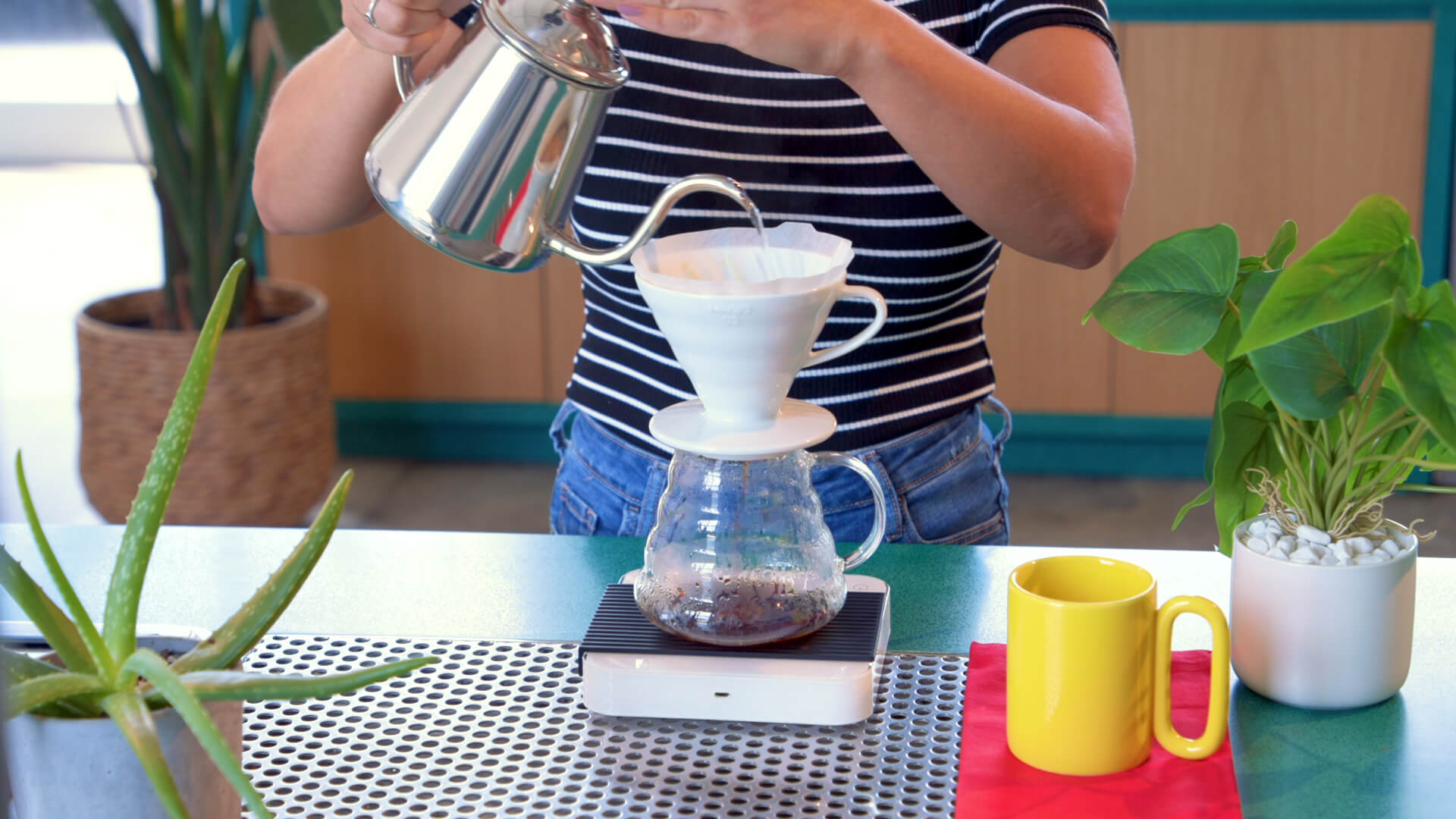
5: Begin Brewing
Wait 30 seconds and then pour water in circular motion to 200g.
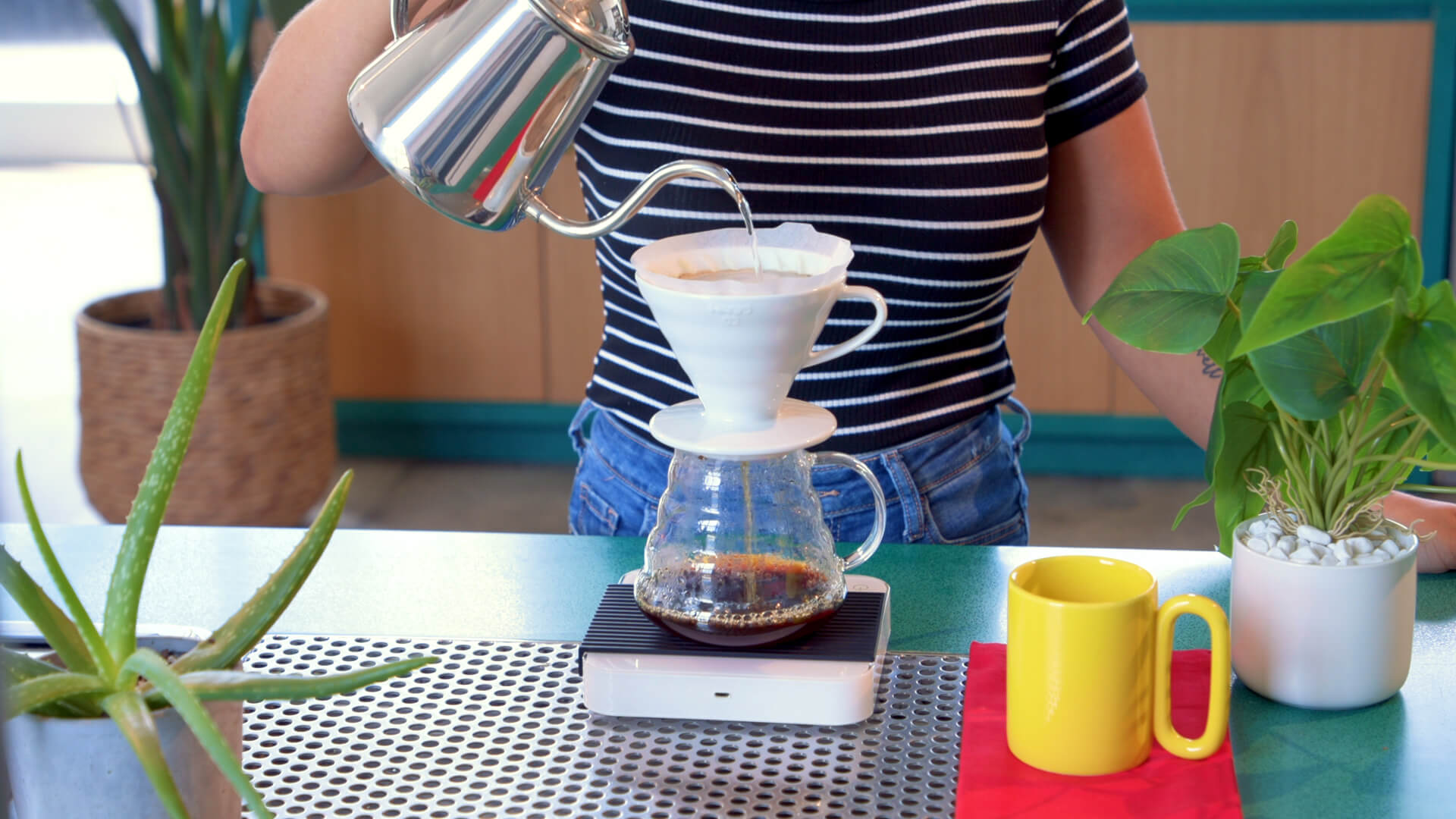
6: Pour + Repeat
By 1:00 the water should have drained a centimeter, pour in a circular motion to 300g. Repeat this process every 30 seconds, until reaching a total weight of 500g.
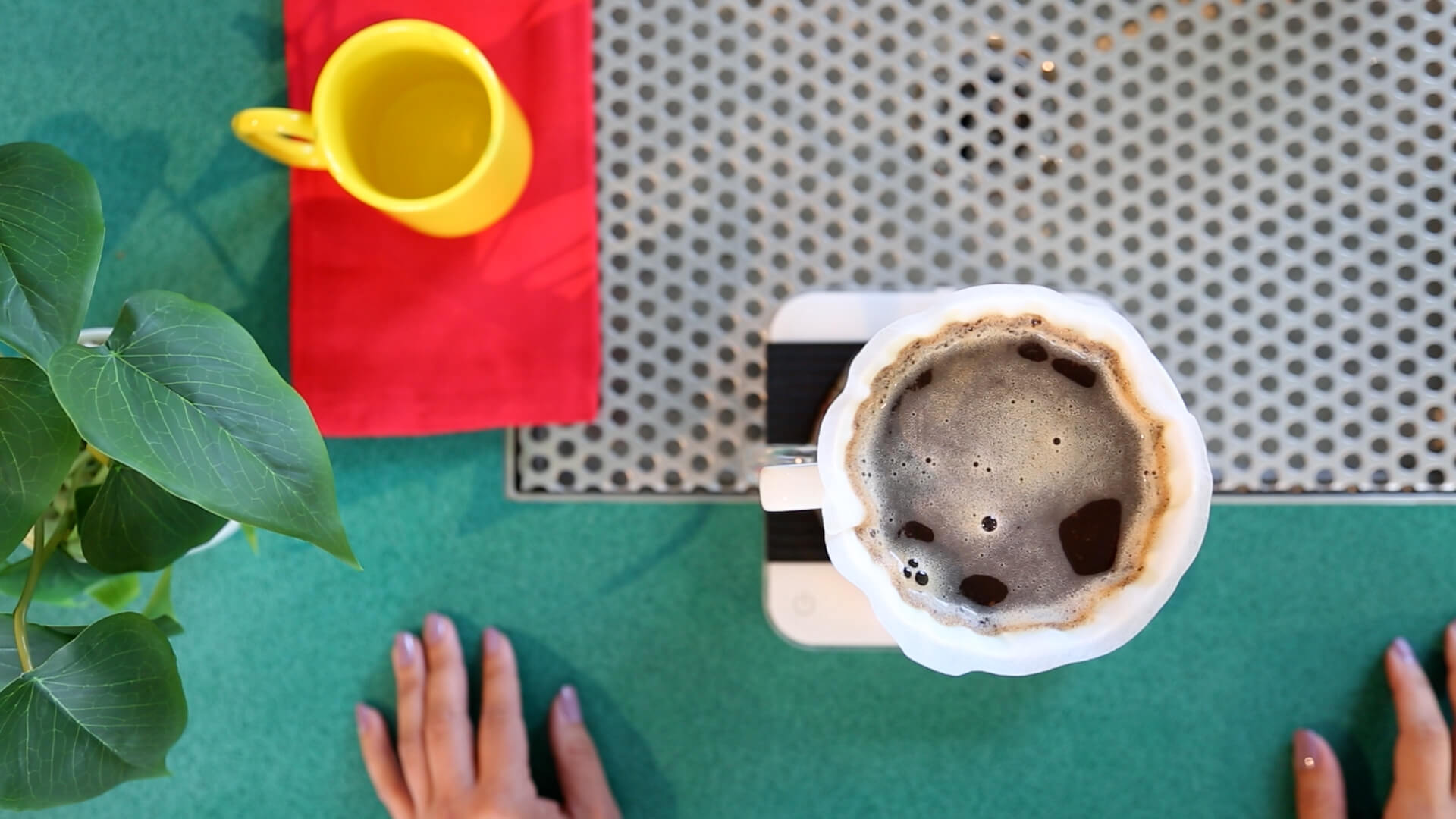
7: Drain
The coffee should finish draining by 3:30-4:00.
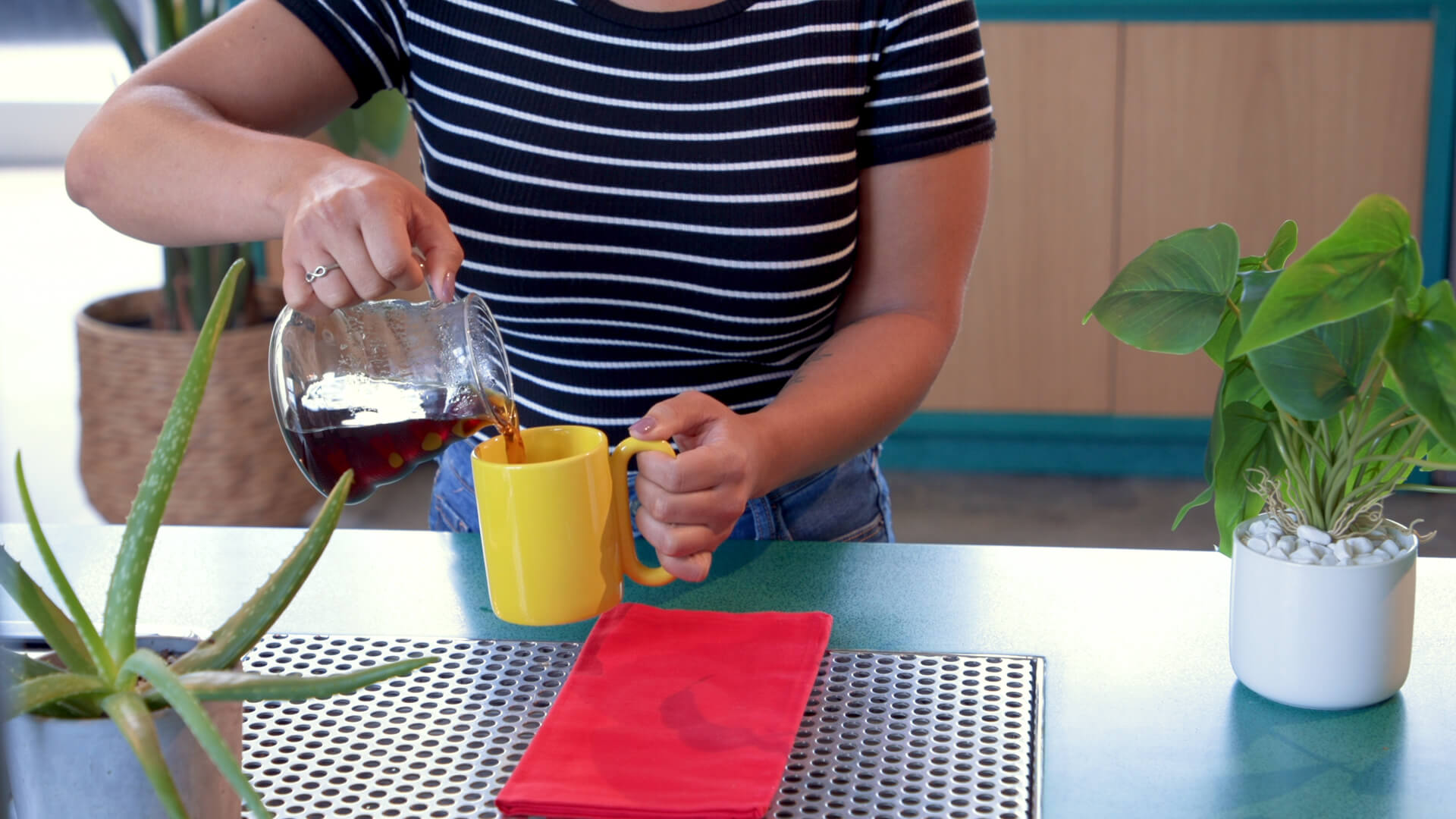
8: Enjoy!
-
![]()
Sustainably-Sourced
-
![]()
Quality-Focused
-
![]()
B Corp Certified
-
![]()
Transparently Traded
![]()
Sustainably-Sourced
![]()
Quality-Focused
![]()
B Corp Certified
![]()
Transparently Traded


